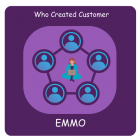Which is the Best Platform for Your Online Startup: BigCommerce or Magento 2?

Which is the Best Platform for Your Online Startup: BigCommerce or Magento 2?
Table of Contents
- Overview of BigCommerce and Magento 2
- Key Features of BigCommerce
- Key Features of Magento 2
- Ease of Use: BigCommerce vs. Magento 2
- Customization and Flexibility: Which Platform Wins?
- Pricing Comparison: BigCommerce vs. Magento 2
- Performance and Scalability for Growing Businesses
- Support and Community Resources: A Closer Look
- Security Features of BigCommerce and Magento 2
- Final Thoughts: Choosing the Right Platform for Your Startup
Overview of BigCommerce and Magento 2
In the ever-evolving world of e-commerce, selecting the right platform can determine your startup's success. BigCommerce is a comprehensive, cloud-based solution designed specifically for businesses that prioritize ease of use and scalability without extensive technical expertise. It simplifies the setup process by bundling hosting, security, and maintenance, enabling entrepreneurs to focus more on growing their businesses rather than on technical details.
Magento 2, on the other hand, is an open-source platform that offers deep customization and flexibility. It is best suited for businesses that have specific needs or those looking for advanced functionalities that standard solutions might not provide. While Magento 2 allows for significant customization, it also demands a greater commitment in terms of time, resources, and technical skill.
Choosing between BigCommerce and Magento 2 requires a careful consideration of your business goals, technical abilities, and the type of online experience you wish to provide.
Key Features of BigCommerce
BigCommerce offers a range of powerful features that can benefit startups looking to launch their online presence:
User-Friendly Interface: BigCommerce is known for its intuitive dashboard that makes managing your online store straightforward. Users can easily navigate through settings, inventory management, and order processing without extensive training.
Built-in SEO Tools: The platform comes equipped with SEO-friendly features, including customizable URLs, meta tags, and sitemaps, allowing businesses to optimize their stores for search engines right out of the box.
Mobile Optimization: All BigCommerce templates are mobile-responsive, ensuring that customers have a seamless shopping experience whether they are on a desktop, tablet, or smartphone. Given the increasing trend of mobile shopping, this is a crucial feature.
Payment Gateway Options: BigCommerce supports a wide range of payment gateways, including PayPal, Stripe, and Amazon Pay, which provides customers with multiple checkout options, thus improving conversion rates.
Robust Analytics: The platform offers advanced analytics and reporting tools that enable businesses to monitor their sales, customer behavior, and marketing performance. This data-driven approach helps startups make informed decisions to drive growth.
Tip
If you offer your SEO texts in several languages or localize them for different regions, your pages may be incorrectly classified as duplicate content. However, there is a simple solution to this in the form of hreflang. Our article explains what you need to bear in mind when using hreflang.
Read more about hreflangKey Features of Magento 2
Magento 2 is revered for its extensive capabilities, especially suited for businesses looking for advanced functionalities:
Advanced Customization: One of Magento 2’s most significant advantages is its flexibility. Users can modify themes and extensions, allowing for a tailored e-commerce experience. Developers can create unique functionalities to meet specific business requirements.
Multi-Store Management: Magento 2 allows users to manage multiple stores from a single admin interface. This feature is particularly useful for businesses operating in various regions or markets, simplifying the management process.
Scalability: As your business grows, Magento 2 can scale with you. It can handle high volumes of traffic and large inventories, making it a suitable option for businesses with ambitious growth plans.
Rich Extensions Marketplace: Magento 2 has a vast marketplace filled with thousands of extensions and plugins that add functionalities to your store. From marketing tools to advanced analytics, the possibilities are extensive.
Robust Security: Security is a top priority for e-commerce, and Magento 2 includes multiple layers of security features, including two-factor authentication, regular security updates, and compliance with PCI standards.
Ease of Use: BigCommerce vs. Magento 2
When it comes to ease of use, BigCommerce stands out for its simplicity. The platform’s straightforward interface allows users to set up their online stores with minimal technical knowledge, making it ideal for startups without dedicated IT teams. Features like drag-and-drop page builders and predefined templates make it easy to create a professional-looking store quickly.
Magento 2, in contrast, presents a steeper learning curve. While it offers extensive customization options, it often requires a solid understanding of web development and design principles. For businesses that lack in-house development capabilities, this can lead to increased costs as they may need to hire external developers to manage and customize their store.
Customization and Flexibility: Which Platform Wins?
In the realm of customization, Magento 2 is the clear winner. Its open-source nature allows businesses to build highly tailored solutions, integrating specific functionalities that align with their unique needs. This flexibility can be a game-changer for companies that need to stand out in a competitive market.
BigCommerce does provide customization options, but they are limited compared to Magento 2. Users can modify existing templates and make use of some built-in features, but for businesses looking to create a truly unique online experience, Magento 2's extensive customization capabilities will likely be more appealing.
Pricing Comparison: BigCommerce vs. Magento 2
BigCommerce operates on a subscription model with tiered pricing based on the features and revenue thresholds of your store. This includes costs for hosting, security, and customer support, which can be beneficial for startups looking to manage their budget effectively. Pricing tiers start with a basic plan suitable for smaller businesses and increase as you scale.
Magento 2, as an open-source solution, is free to download and use, but this comes with hidden costs. Businesses must invest in hosting, security measures, and potentially significant development resources to customize and maintain their stores. This can lead to higher overall costs, particularly for startups that might not yet have a steady revenue stream.
Performance and Scalability for Growing Businesses
Both platforms are designed to support growth, but they do so in different ways. BigCommerce benefits from cloud hosting, which ensures consistent performance even during traffic spikes. This makes it suitable for startups anticipating rapid growth or seasonal spikes in sales.
Magento 2 can also handle high traffic volumes but requires careful management of server resources and optimization. Businesses may need to invest in robust hosting solutions and ongoing performance tuning to ensure their site runs smoothly. This can add complexity to the management of the store, particularly for startups without dedicated IT staff.
Support and Community Resources: A Closer Look
BigCommerce offers comprehensive 24/7 customer support via phone, live chat, and email, which can be invaluable for startups needing quick assistance. Additionally, it features a detailed knowledge base, community forums, and a variety of resources to help users troubleshoot common issues.
In contrast, Magento 2 relies heavily on its community for support. While there are many forums and resources available, businesses often find that technical issues require hiring external developers for assistance. This reliance on third-party support can lead to slower response times and potentially higher costs.
Security Features of BigCommerce and Magento 2
Security is critical for e-commerce platforms, and both BigCommerce and Magento 2 offer robust security features. BigCommerce ensures PCI compliance, which protects customer data during transactions. It also includes built-in SSL certificates and offers ongoing security monitoring.
Magento 2, on the other hand, is responsible for its own security. It provides features like two-factor authentication and frequent updates to address vulnerabilities. However, since users must implement their security measures, there’s a greater responsibility on the business to ensure their store is adequately protected. This can be a concern for startups that may lack the necessary technical expertise.
Final Thoughts: Choosing the Right Platform for Your Startup
Deciding between BigCommerce and Magento 2 ultimately hinges on your startup’s unique needs, budget, and technical capabilities. If you seek a straightforward, user-friendly solution that allows you to quickly launch your online store with minimal hassle, BigCommerce is the ideal choice. Its built-in features and 24/7 support make it accessible for businesses without extensive technical backgrounds.
Conversely, if your business requires a high level of customization and you have the resources to manage a more complex platform, Magento 2 could be the better fit. Its flexibility and scalability can cater to businesses with specific requirements or those anticipating significant growth.
In conclusion, assessing your business goals, available resources, and long-term plans will guide you in choosing the right e-commerce platform to ensure your startup thrives in the competitive online marketplace.
| BigCommerce vs. Magento 2: Choosing the Right Platform for Your Startup | |
|---|---|
| 1. Overview of BigCommerce and Magento 2 | An introduction to both platforms, highlighting their core differences and target audiences. |
| 2. Key Features of BigCommerce | Explores BigCommerce’s features such as ease of use, SEO tools, mobile optimization, and payment options. |
| 3. Key Features of Magento 2 | Covers Magento 2’s customization capabilities, multi-store management, scalability, and security features. |
| 4. Ease of Use: BigCommerce vs. Magento 2 | Compares the ease of setup and management for beginners and experienced developers on each platform. |
| 5. Customization and Flexibility: Which Platform Wins? | Examines which platform offers greater customization options for unique branding and functionality. |
| 6. Pricing Comparison: BigCommerce vs. Magento 2 | Analyzes costs, including BigCommerce’s subscription model versus Magento’s open-source approach. |
| 7. Performance and Scalability for Growing Businesses | Looks at each platform’s ability to handle increased traffic and expand with business growth. |
| 8. Support and Community Resources: A Closer Look | Details the support options and community resources available to users on both platforms. |
| 9. Security Features of BigCommerce and Magento 2 | Compares security measures each platform offers, including SSL, PCI compliance, and regular updates. |
| 10. Final Thoughts: Choosing the Right Platform for Your Startup | Provides a summary to help businesses decide based on specific needs, budget, and technical capabilities. |
FAQs
What Makes BigCommerce a Good Option for Online Startups?
BigCommerce offers a cloud-based, easy-to-use platform that requires minimal technical expertise. It includes hosting, security, and maintenance in its subscription, allowing startup owners to focus on business growth without worrying about technical details.
Why Might Magento 2 Be a Better Choice for Some Startups?
Magento 2 is an open-source platform that offers deep customization options, making it ideal for startups with specific needs or complex functionalities. It allows businesses to create a tailored online experience, though it requires a higher level of technical skill and resources.
What Are the Key Features of BigCommerce for Startups?
BigCommerce features a user-friendly dashboard, built-in SEO tools, mobile optimization, a variety of payment gateway options, and robust analytics to monitor sales and customer behavior.
How Does Magento 2 Support Customization?
Magento 2 supports advanced customization through themes and extensions. Businesses can modify the platform to meet specific requirements and manage multiple stores from a single interface, making it highly flexible and scalable.
Is BigCommerce Easy to Use for New E-commerce Businesses?
Yes, BigCommerce is designed for ease of use, offering a straightforward setup process with drag-and-drop page builders and pre-defined templates. This makes it ideal for startups without dedicated IT resources.
Which Platform Is More Cost-Effective for Startups: BigCommerce or Magento 2?
BigCommerce operates on a subscription model with tiered pricing, making it predictable for budgeting. Magento 2 is free to use but requires additional investments in hosting, security, and customization, which can increase costs for startups.
How Do BigCommerce and Magento 2 Handle High Traffic?
BigCommerce is cloud-hosted and handles traffic spikes smoothly. Magento 2 can support high traffic but requires optimized hosting and performance management, which may add complexity for startups.
What Kind of Support Do BigCommerce and Magento 2 Offer?
BigCommerce provides 24/7 support via phone, chat, and email. Magento 2 relies on community forums and third-party developers for support, which can lead to slower responses and higher costs.
What Security Features Do BigCommerce and Magento 2 Offer?
BigCommerce includes built-in SSL, PCI compliance, and security monitoring. Magento 2 offers advanced security options but requires businesses to manage their security, making it a better fit for startups with technical expertise.
Which Platform Is Best for Startups Seeking Rapid Growth?
BigCommerce is suitable for startups focused on rapid growth due to its scalable cloud infrastructure. Magento 2 can also scale but requires additional resource management, which may be challenging for startups with limited technical staff.










